Monday – Friday: 8:00 – 18:00 Hrs
Phone: +47 6723 1619
E-mail: waternorway@nmbu.no

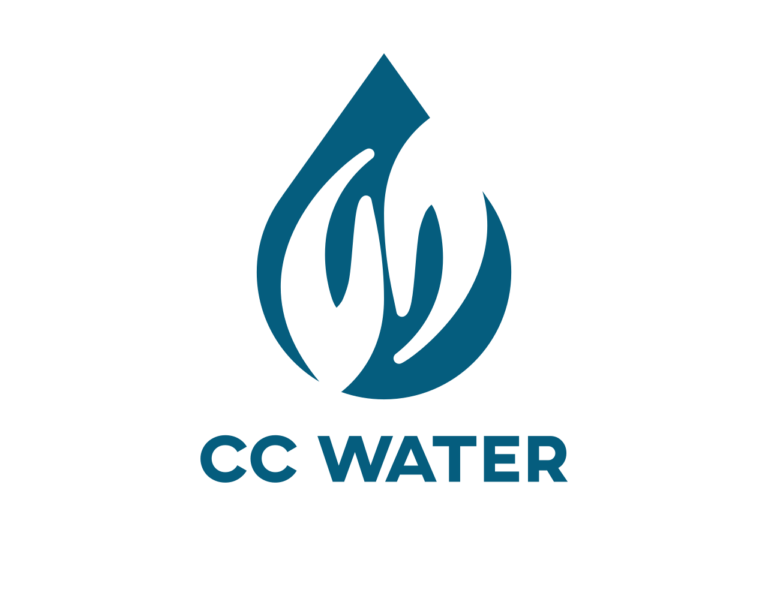
Graduates for Climate Change adapted water management
Coordinated by the Norwegian University of Life Sciences and implemented by 11 universities from 6 countries
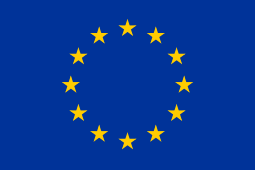
Co-funded by the Erasmus+ Programme of the European Union
Improve the level of competencies and skills in HEIs from the Partner Countries
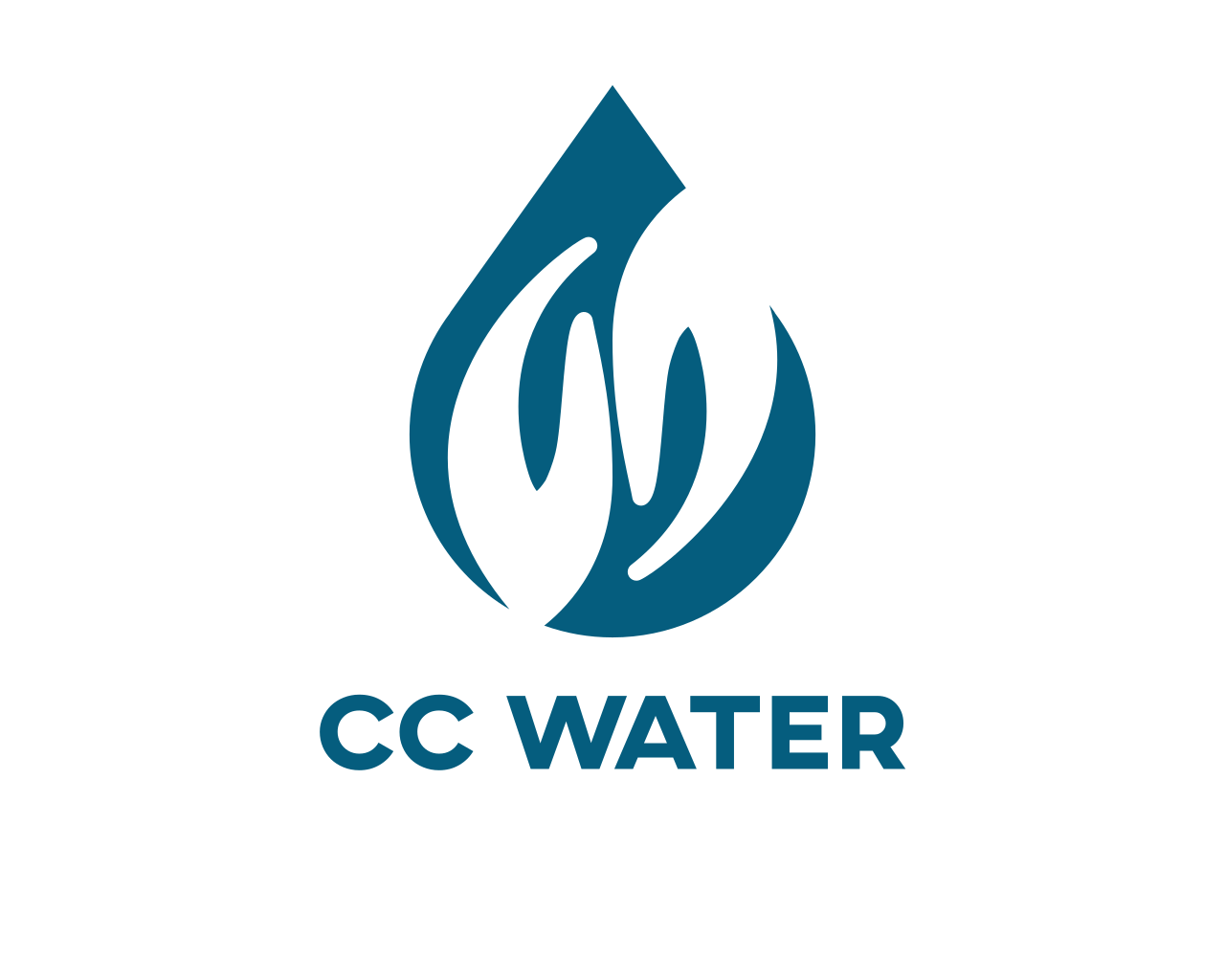
Modernize water-related higher education with climate change issues and internationaliseHEIs from the Partner Countries
Improve diversity and inclusion of higher education in the Partner Countries
Since 2005, the Water Authority of Mongolia has organized the “Water is a Key for Development” students’ conference for World Water Day. This year, the 18th edition was hosted by the School of Civil Engineering and Architecture at the Mongolian University of Science and Technology (MUST) on March 22, 2024, with funding from the Millennium Challenge Corporation’s Water Compact.
The conference received 20 submissions from students of MUST, the National University of Mongolia (NUM), and the Mongolian National University of Medical Sciences (MNUMS). Fifteen students were selected to present their research, with the best studies recognized by the scientific committee.
Popular among undergraduates researching water-related topics, the event offered the CCWater team an opportunity to showcase their project’s activities and achievements. This final presentation highlighted the project’s impact on graduate education in Mongolia’s water sector, ensuring broad dissemination of results to students, government, and industry stakeholders.
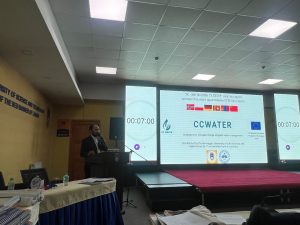
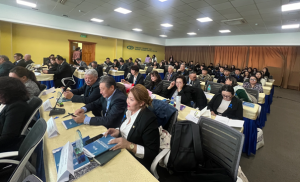
CCWATER consortium is excited to share some highlights from our students’ participation in the CCWATER project! Students from across the world came together, exchanging knowledge, learning, and networking opportunities. It’s inspiring to see how collaboration, funded by EU, is driving progress in water research and sustainability.
Exciting news from CCWATER! The consortium met online today after getting together in person in Ulaanbaatar, Mongolia. We discussed the work packages updates and next steps including the Winter School and the concluding meeting in #China.
CCWATER, an Erasmus Plus project, boasts collaboration among 11 universities spanning 6 countries, all orchestrated by the coordination of NMBU – Norwegian University of Life Sciences, Norway.
The project’s primary objective is to fortify water-related higher education in the six partner countries. The aim is to enhance resilience against the impacts of climate change by equipping higher education institutions (HEIs) with modern technology, as well as fostering the development of competencies and skills through contemporary teaching resources for climate change adaptation .
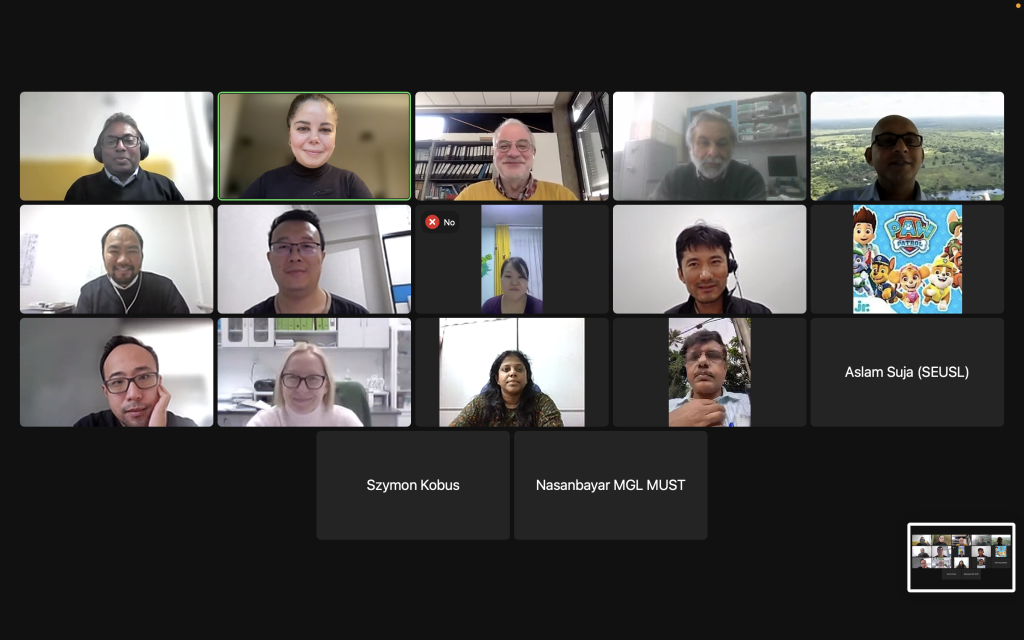
From October 12 to 14, students from the National University of Mongolia and the Mongolian University of Science and Technology embarked on an inspiring journey as they participated in the CCWATER Hackathon. This event ran parallel to the CCWATER project meeting in Ulaanbaatar, Mongolia, and was centered around the theme “The Better and Adapted Water Resources Management in the Gobi Region.”
The students’ mission was clear: to delve into the critical issues and challenges surrounding water management in the Gobi region, particularly in the face of mounting pressures from climate change.
These young teams approached the challenge from diverse perspectives, examining both the technical and policy aspects of managing surface water and groundwater. Their dedication and innovative ideas were nurtured by our dedicated mentors, resulting in impressive progress.
To mark the event’s conclusion, Professor Harsha Ratnaweera presented certificates to these future young professionals, acknowledging their hard work and commitment.
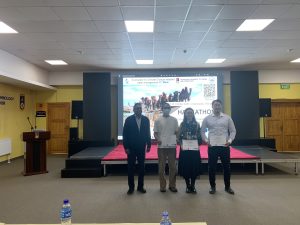
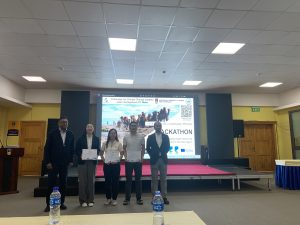
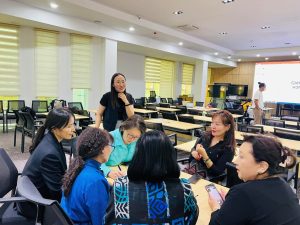
The CCWATER project took place in Ulaanbaatar, Mongolia, from October 12 to October 14, 2023. This event was organized in collaboration with our partners, the National University of Mongolia and the Mongolian University of Science and Technology. Our international consortium, consisting of 11 universities from six different countries came together at the premises of the National University of Mongolia on the first day to facilitate the exchange of ideas and strategies aimed at enhancing the efficiency of our project. It was a day focused on sharing insights and refining our approach.
On the second day of our meeting, we had the opportunity of visiting the premises of our partner, the Mongolian University of Science and Technology. This day was characterized by in-depth discussions and a packed schedule, both of which played a pivotal role in advancing our project objectives.
The three-day event came to an end with a well-defined plan where all partners are fully committed to taking the necessary steps to bring this project to fruition by the summer of 2024.
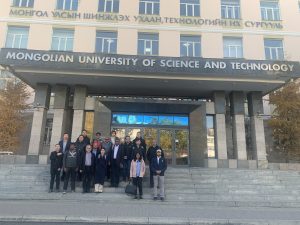
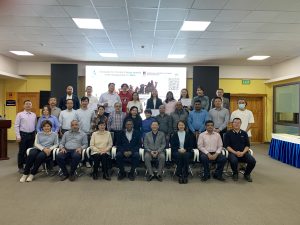
A1.1 Prioritisation of needs
A1.2 Analysis of partners’ assets
A1.3 Best practices review
A1.4 Scoping review of policy and actions
A1.5 Gaps analysis, specification of needs and actions
A2.1 Curriculum design
A2.2 Content development
A2.3 Curriculum implementation
A3.1 Staff training «Curiosity-driven education»
A3.2 Collaborative mentoring /joint supervision online platform
A3.3 Interactive tools for teaching
A3.4 Virtual mobility course
A4.1 Training “Socially engaged universities and community-connected pedagogies”
A4.2 University-enterprise forums
A4.3 Social entrepreneurship hackathons “Water & climate change”
A5.1 Quality assurance in the project
A5.2 Sharing quality assurance practices
A5.3 Inter-project coaching and cross-evaluation
A6.1 Dissemination & Exploitation Plan
A6.2 Project website
A6.3 Promotion materials
A6.4 Promo-video
A6.5 Social media marketing plan
A6.6 Educational publications
A6.7 Exploitation roundtables and/or board meetings
A7.1 Overall project coordination
A7.2 Project Steering Committee (PSC) and the Project Guide
A7.3 Day-to-day coordination of the project
A7.4 Project communications
A7.5 Project progress meetings and staff travels
A7.6 Student travels
A7.7 External financial audit
Documents are available for download under Project Documents and Deliverables further down the page
WP7
WP5 WP6
WP1
WP5 WP6
WP3
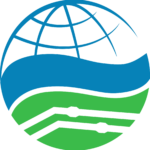
D1.1.1 Workshop report on strategic priorities for curricula development
D1.2.1 Report on existing curricula – strengthens and weaknesses
D1.2.2 Report on existing practices strengthens and weaknesses
D1.2.3 Report on existing quality assurance practices
D1.2.4 Summary report on the partners’ assets
D1.3.1 Report on external best practices
D1.3.2 Best practices report
D1.4.1 Report on climate-water policy and actions in Asia
D1.4.2 Report on water-climate policy and actions in EU
D1.5.1 SWOT report on strategy for curricula development on water and climate change
D2.1.1 Training material on curriculum development, training and reflective report Engines and anchors for curriculum
D2.1.2 Curriculum document Water & Climate Change
D2.1.3 Updated curriculum document Water & Climate Change
D2.1.4 Syllabi for 3 courses
D2.2.1 Lecture materials for 3 courses
D2.2.2 Course No 1. Big Data for iCC – Textbook
D2.2.2 Course No 2. SWM with LID – Textbook
D2.2.2 Course No 3. IWRM under CC – Textbook
D2.2.3 Practical assignments guide
D2.2.4 Report on upgrade of laboratories
D2.2.5 Quality assured content
D2.3.1 A reflective report on training for trainers
D2.3.2 Training evaluation reports
D2.3.3 Evaluation report on lecture materials
D2.3.4 Report on curriculum evaluation by students
D2.3.5 Revised content of 3 courses -2024
D2.3.6 Report on accreditation and formal recognition of curricula
D3.1.1 Training material “Curiosity-driven education”
D3.1.2 Reflective report “Curiosity-driven education”
D3.1.3 Training evaluation report
D3.2.1 Specification of the online platform
D3.2.2 Joint remote supervision online platform
D3.3.1 Digital interaction toolkit
D3.3.2 Report on training evaluation
D3.3.3 Report on evaluation of open teaching sessions using digital tools
D3.4.1 Virtual mobility course “Water Resources Management and community connected pedagogies”
D3.4.2 Report on evaluation of the VM course
D4.1.1 Training material Socially engaged universities and community connected pedagogies
D4.1.2 Report on training evaluation
D4.2.1 University Enterprise Forums and catalogue of challenges
D4.3.1 Report on “Water & Climate Change” hackathons
D5.1 Quality Assurance Plan
D5.2.1 Evaluation Report of Quality Assurance Seminar with Partners
D5.2.2 Compendium of quality assurance policies and practices
D5.2.3 Minutes of the meetings on quality assurance
D5.2.4 Report on external evaluation of the CCWATER project
D5.3.1 Inter-project coaching presentations
D5.3.1 Inter-project coaching report
D5.3.2 Cross-project evaluation reports
D6.1 Dissemination and Exploitation Plan
D6.4 Project Promo Video – 2024.1.18 CCWATER Project Meeting
D6.4 Project Promo Video – Partner Introductions
D6.5 Social media marketing plan
D6.7 Minutes of exploitation roundtables and – or board meetings
A Comparative Study Of Community Reverse Osmosis And Nanofiltration
A Masters Of Didactics Model For University Teaching And Tutoring
A Review Of Recent Changes In Rainfall Trend In Sri Lanka
Assessment Of Extreme Rainfall Through Statistical Process Control-I Chart
Concurrent Removal Of Hardness And Fluoride In Water By Monopolar Electrocoagulation
Ecological Approaches To Forest Restoration- Lessons Learned From Tropical Wet Asia
Enhanced Vector Transport Of Microplastics-Bound Lead Ions In Organic Matter Rich Water
Flood Inundation Modelling In Greater Colombo Region Using Hec-Ras 2D
Hydrology As A Determinant Of Riparian Habitat Structure In Lowland River Floodplains
Icsbe 2020 Proceedings Of The 11Th International Conference On Sustainable Built Environment
Icsbe 2022 Proceedings Of The 13Th International Conference On Sustainable Built Environment
Imperative Assessment On The Current Status Of Rubber Wastewater
Improvement Of Heavy Metal Removal From Urban Runoff Using Modified Pervious Concrete
Improving Sub Daily Scale Storm Forecasting For Kelani River Basin
Integrated Mathematical Model To Simulate The Performance Of A Membrane Bioreactor
Metal And Nutrient Uptake By Natural Wetland Plants In A Tropical Man-Made Wetland Of Sri Lanka
Modernization Of The Left Bank Irrigation System Of The Kaudulla Reservoir Of Sri Lanka
Performance Of Biochar Mixed Cement Paste For Removal Of Cu, Pb And Zn From Stormwater
Review On Model Development Techniques For Dam Break Flood Wave Propagation
Suspended Solid Removal Efficiency Of Plate Settlers And Tube Settlers Analysed By Cfd Modelling
Tree Diversity And Soil Characteristics In A Tea-Forest Interface In Southwest Sri Lanka
UN Decade On Ecosystem Restoration 2021-2030- Are We Ready For The Grand Challenge
Use Of The Water Quality Index And Multivariate Analysis To Assess

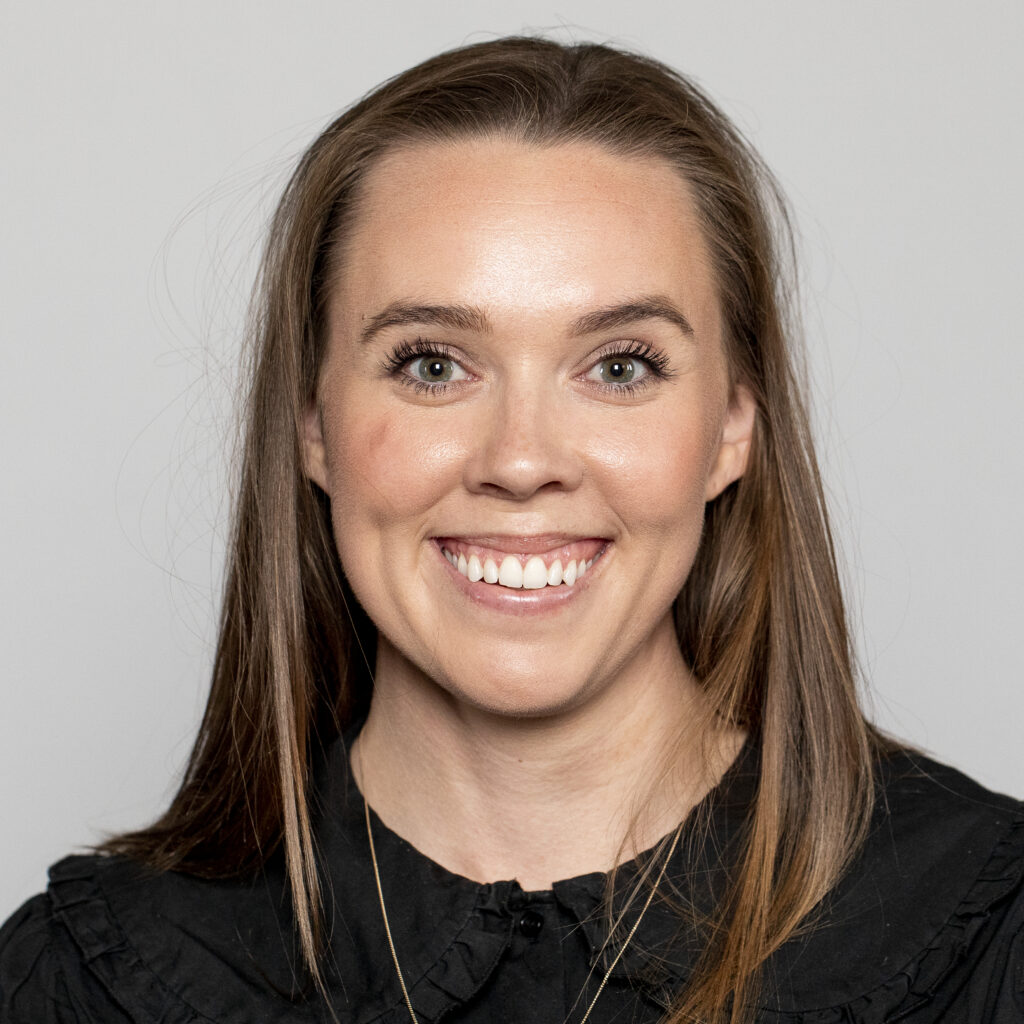
Phone: +47 6723 1619
E-mail: waternorway@nmbu.no

